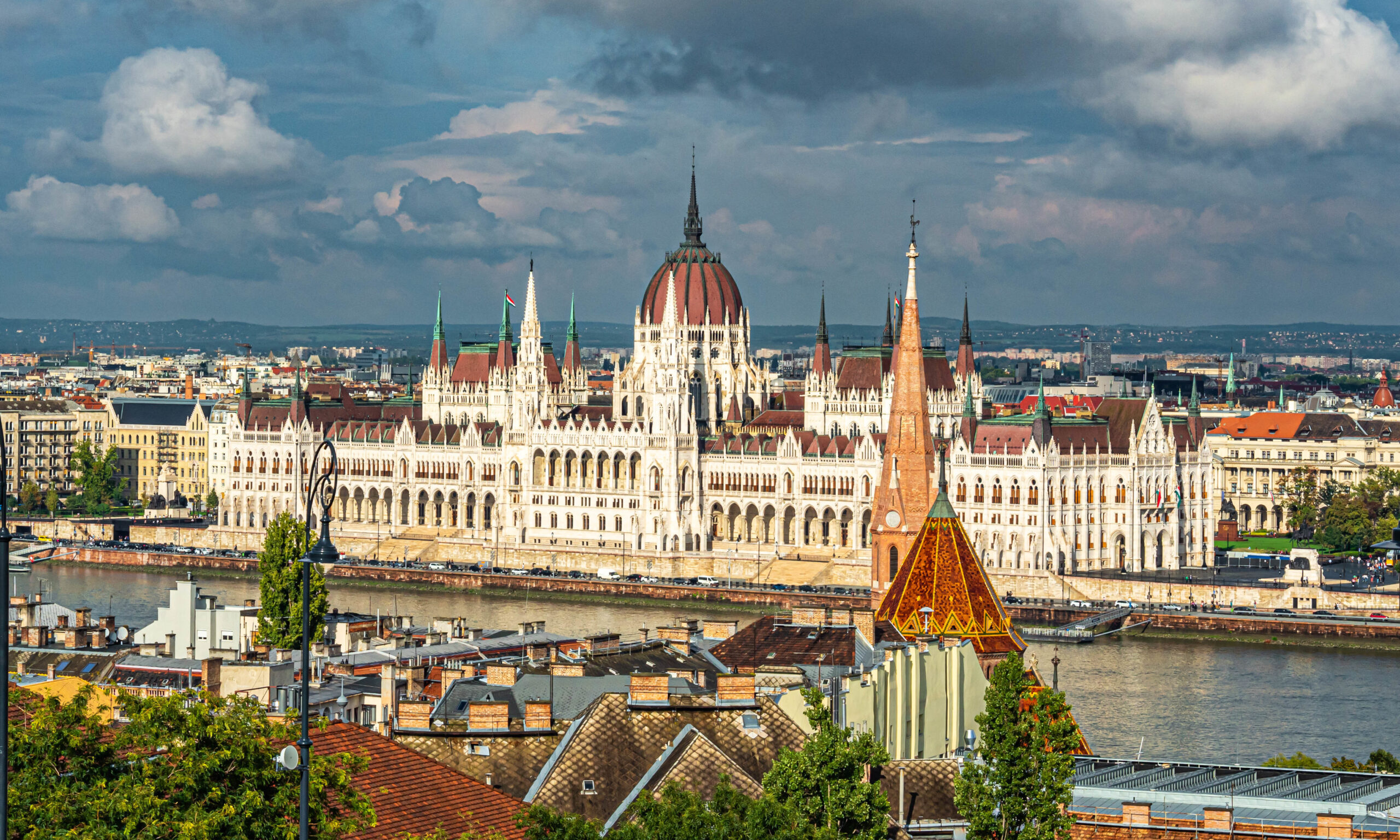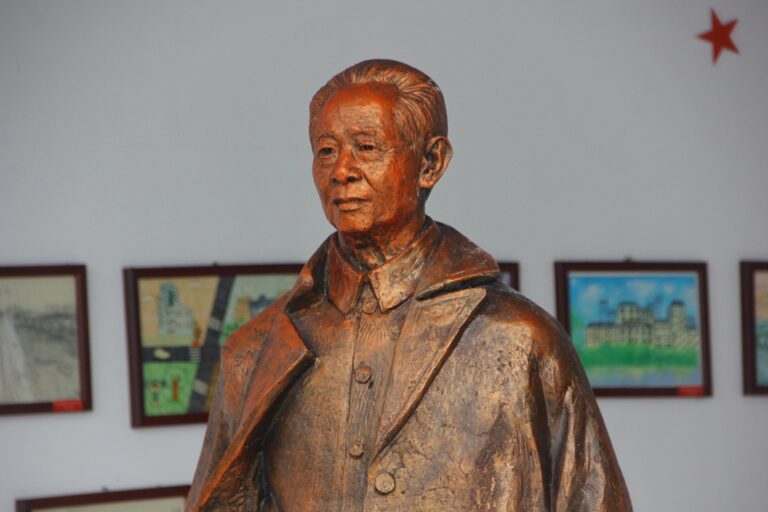Amid Heated European China Debate, Hungary Stays on a Beijing-friendly Course

While the EU-China relations are at a crossroads, Hungary’s relationship with the Middle Kingdom seems to be blooming. In the last few years, Budapest has signed a number of massive investment deals with Beijing, earning it the label of China’s European foothold. Although the economic results have sometimes come under question, the political consequences are undeniable.
This article is part of a series of articles authored by young, aspiring China scholars under the Future CHOICE initiative.
Hungary’s often peculiar foreign policy tends to leave EU capitals and other allies wondering about Budapest’s motives. This is especially the case when it comes to consequential and multifaceted areas such as the relationship with China. At the same time, French President Emmanuel Macron’s recent China visit has once again highlighted that a common EU position remains a distant ideal and against this background, Hungary’s stance may not be so much on the fringe after all.
Comprehensive Strategic Cooperation
Hungary’s ties with China have been gradually expanding since the government’s announcement of the “Eastern Opening” strategy a decade ago. While many have criticized the policy for not delivering on the economic promises, this did not prevent the two from championing the relations and upgrading them to a comprehensive strategic partnership in 2017.
Yet, even in the economic field, things have recently moved forward. Last year, for the first time, China ranked among the top six sources of foreign direct investment. Hungary has also become a host to several major Chinese companies’ regional headquarters, including those of Huawei, NIO, BYD, Lenovo, Wanhua, and ZTE. Most recently, joining the Bank of China and the China Development Bank, the China Construction Bank (CCB) also opened its branch in the Hungarian capital.
The economic relations have been coupled with a considerable diplomatic display of close ties. The CCB’s Chairman was personally welcomed in Budapest by Prime Minister, Viktor Orbán, and four other cabinet members. Hungary’s Foreign Minister, Péter Szijjártó, has made several trips to China during his nine years in office and this year marked his 15th meeting with Chinese top diplomat Wang Yi. The recent arrival of the first group of Chinese tourists – after a three-year hiatus due to the pandemic restrictions – was hailed as a milestone in the tourism industry and celebrated with fanfare. However, even though on a political level, the relationship is blooming, Chinese projects are increasingly met with public resistance.
Domestic Realities
The latest on the list of Chinese projects is the planned €7.3 billion battery plant in Eastern Hungary by China’s CATL. The manufacturing giant already has a €2 billion European plant in Germany which was received favorably but the proposal to build a new facility next to Hungary’s second city was met with considerable grassroots opposition. Locals are concerned about the environmental hazards, and the possible inflow of Chinese workers into the small town was also raised as an issue. While Hungary has, according to some statistics, the largest Chinese diaspora in the CEE region, the government’s anti-immigration propaganda has, paradoxically, left many concerned about foreign workers in the country. Moreover, a recent survey has found that half of the Hungarian population disagrees with the establishment of battery factories in Hungary because of the environmental risks.
This is not the first time that a Chinese mega project draws significant local opposition. Just two years ago, the plans for the Chinese Fudan University’s Budapest campus were also met with significant public backlash. The proposal drew accusations of corruption and misuse of state funds and while many analysts argued that the project is ‘too big to fail’, the plans have been put on ice without much progress.
The increased scrutiny over Fudan also brought attention to other controversial Chinese investments such as Belt and Road Initiative’s flagship project, the Budapest-Belgrade Railway. The documents behind the costly undertaking which, was estimated to pay off in just about 900 years, were declared, apparently on Chinese request, as a state secret for ten years. Last month, the government quietly increased the project’s budget (estimated to be around €2 billion) by an additional €53 million for renovations and habitat restoration. Still, in the dire economic situation, showcasing the massive Chinese investments and potential job prospects still holds some charm for the domestic audience.
Avoiding Blocs but Ending up in a Corner?
The Orbán government’s stated strategic goal in foreign policy is to avoid blocs and “maintain connections with as many other countries and market players from all over the world as possible.” This multi-vector foreign policy has mostly worked out for Budapest in the last decade but appears to be increasingly costly in the current geopolitical climate. While the government’s position emphasizes Hungary’s place in the West, its behavior and communication often leave its Western allies second-guessing. Even in the near region, Hungary’s approach to the war in Ukraine might have permanently changed the Visegrád Group’s dynamics and evidently strained its relationship with Hungary’s long-term closest partner, Poland.
Hungary’s relationship with the US is also reaching new lows as the latter sanctioned the Budapest-based Russian International Investment Bank and its management, including Hungarian nationals. Hungary is now the only EU country outwardly maintaining friendly ties with Russia, but Budapest has still subscribed to all the EU-level sanctions. In response, Moscow designated also Hungary as an unfriendly country, with an option to apply retaliatory measures. Last but not least, defying the EU trends, Hungary maintains its dependence on Russian gas and oil and the Russian Rosatom plays a crucial role in the expansion of Hungary’s nuclear power plant.
While aiming to build diversified ties, Hungary might just be gaining adversaries. Budapest thus finds its room to maneuver on the international stage shrinking, leaving the Orbán government in a precarious situation.
In such a constellation, the relations with China might as well take on a new level of significance. Going forward, the relationship could be a lifeline for Hungary’s foreign policy, but without some consolidatory actions towards the Western allies, cozying up to Beijing might further sideline the country in the EU.
In this respect, Hungary is trying to capitalize on the recent signals that some EU leaders are willing to reinvigorate ties with China and distance themselves from the US. Recently, Orbán stood behind President Macron’s remarks on reducing dependency on the US and avoiding being dragged into the great power confrontation that stirred up controversy on both sides of the Atlantic. According to Orbán, “The French president is looking for potential partners and not enemies, which is similar to the Hungarian position: We must start from our own interests, not take into account the interests of others.”
Next steps
Whether this particular convergence between the Hungarian and the French standpoint on China will gain more traction is yet to be seen, as the recent remarks by the Chinese ambassador to France seemed to have burned most of the goodwill earned by Macron’s visit.
Nevertheless, Budapest is still likely to double down on its relationship with China. Orbán’s trip to China this fall has recently been confirmed and is currently under preparation. The meeting will be the 4th occasion Orbán and Xi meet in person. Little is known about the objectives at this point, but the trip is expected to further strengthen economic cooperation and bring more Chinese investment to the country. Given Hungary’s current international environment, the uncertain fate of the proposed Fudan campus, and the local reactions to the planned CATL factory, the government would do well not to overlook the views of its citizens and international allies this time.
Written by
Réka Koleszár
RekaKoleszarRéka Koleszár is a PhD student at National Chengchi University in Taipei, Taiwan and a Program Assistant at the European Center for Populism Studies. She holds master’s degrees in Political Science and International Relations with a focus on East Asia, has completed a traineeship at the Council of the EU, and has experience as a Program Assistant at the European Policy Centre.


